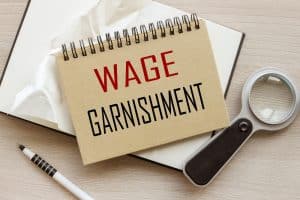 Facing wage garnishment can be a daunting and stressful experience, leaving you feeling powerless over your financial situation. However, you have more options than you may realize to reclaim control and put a stop to this intrusive debt collection tactic. In this comprehensive guide, we’ll explore a range of effective strategies you can employ to halt wage garnishment immediately and get your finances back on track.
Facing wage garnishment can be a daunting and stressful experience, leaving you feeling powerless over your financial situation. However, you have more options than you may realize to reclaim control and put a stop to this intrusive debt collection tactic. In this comprehensive guide, we’ll explore a range of effective strategies you can employ to halt wage garnishment immediately and get your finances back on track.
Understanding Wage Garnishment: The Basics
Wage garnishment is a legal process in which a creditor obtains a court order to have a portion of your earnings withheld directly from your paycheck to repay an outstanding debt. This can happen when you’ve fallen behind on bill payments, and the creditor has exhausted other collection efforts. The amount that can be garnished is typically limited to a percentage of your disposable income, as defined by federal and state laws.
Disposable income refers to the money left over after mandatory deductions, such as taxes, Social Security, and Medicare, have been taken out of your gross pay. Creditors are generally restricted from garnishing more than 25% of your disposable earnings or the amount by which your take-home pay exceeds 30 times the federal minimum wage, whichever is lower.
Proactive Measures to Avoid Wage Garnishment
The best way to deal with wage garnishment is to prevent it from happening in the first place. By taking proactive steps, you can often resolve the debt before the creditor resorts to this drastic measure.
Negotiate with Creditors
One of the most effective strategies is to reach out to the creditor directly and negotiate a payment plan or settlement agreement. Creditors are often willing to work with you, especially if you can demonstrate a genuine effort to resolve the debt. Propose a reasonable monthly payment that fits within your budget, or inquire about the possibility of a lump-sum settlement for a reduced amount.
Seek Credit Counseling
Engaging with a nonprofit credit counseling agency can be incredibly helpful in navigating the process of negotiating with creditors. These organizations can act as intermediaries, helping you establish a manageable repayment plan or even negotiate a debt settlement on your behalf.
Consolidate or Refinance Debt
If you’re struggling with multiple debts, consider consolidating them into a single loan with a lower interest rate. This can make your monthly payments more manageable and potentially prevent wage garnishment. Alternatively, you may be able to refinance a secured loan, such as a home equity loan, to pay off the garnished debt.
Taking Action to Stop Wage Garnishment
If the creditor has already obtained a court order for wage garnishment, you’ll need to take more immediate action to put a stop to it. Here are some effective options to consider:
Challenge the Garnishment Order
Carefully review the garnishment order and the documentation provided to ensure that the debt is valid and the garnishment is being carried out correctly. If you find any discrepancies or believe the garnishment is unjustified, you can challenge the order in court. This may involve filing a claim of exemption or disputing the amount being garnished.
File for Bankruptcy
Filing for bankruptcy, specifically Chapter 7 or Chapter 13, can provide immediate relief from wage garnishment. The automatic stay that comes into effect upon filing will halt all collection activities, including the garnishment of your wages. This can give you the breathing room you need to restructure your finances or have your eligible debts discharged.
Negotiate a Settlement or Payment Plan
Even if a garnishment order is already in place, you can still try to negotiate with the creditor. Offer a lump-sum settlement or propose a payment plan that works within your budget. While creditors may be less inclined to agree to this after going through the court process, it’s still worth exploring, as they may be willing to halt the garnishment in exchange for a mutually agreeable arrangement.
Navigating State-Specific Wage Garnishment Laws
It’s important to note that wage garnishment laws can vary significantly from state to state. Understanding the specific regulations in your jurisdiction can be crucial in determining your rights and options.
For instance, some states may have more stringent limits on the amount that can be garnished, offer additional exemptions, or have specific procedures for challenging a garnishment order. Familiarizing yourself with your state’s laws can help you make informed decisions and take the appropriate legal actions.
Seeking Professional Assistance
Navigating the complexities of wage garnishment can be daunting, especially if you’re already dealing with financial difficulties. Seeking the guidance of a qualified legal or financial professional can be invaluable in ensuring you explore all available options and make the best decisions for your unique situation.
Consulting with a Bankruptcy Attorney
If you’re considering filing for bankruptcy as a means to stop wage garnishment, it’s highly recommended to consult with a bankruptcy attorney. They can provide expert advice on the bankruptcy process, help you determine the best chapter to file under, and ensure that your rights are protected throughout the proceedings.
Enlisting the Help of a Credit Counselor
As mentioned earlier, working with a nonprofit credit counseling agency can be tremendously helpful in negotiating with creditors and exploring alternative debt management solutions. These professionals can review your financial situation, create a customized plan, and even act as intermediaries on your behalf.
Rebuilding Your Credit After Wage Garnishment
While dealing with wage garnishment can be a significant setback, it’s important to remember that it’s not the end of the road. Once you’ve successfully stopped the garnishment and addressed the underlying debt, you can begin the process of rebuilding your credit and financial stability.
Monitoring Your Credit Report
Regularly reviewing your credit report can help you identify any inaccuracies or lingering effects of the wage garnishment. Dispute any errors you find and work to address any negative items on your report.
Utilizing Credit-Building Strategies
Consider applying for a secured credit card, which requires a refundable security deposit, or becoming an authorized user on someone else’s credit card. These strategies can help you establish or rebuild your credit history over time.
Seeking Financial Education and Support
Engage with resources that can provide financial education and guidance, such as online tutorials, budgeting tools, and community-based programs. Developing a better understanding of personal finance and money management can empower you to make informed decisions and prevent future financial challenges.
Facing wage garnishment can be a daunting experience, but it’s important to remember that you have options and rights that can help you regain control of your financial situation. By exploring the strategies outlined in this comprehensive guide, you can take proactive steps to stop the garnishment, negotiate with creditors, and ultimately work towards a more stable and secure financial future.
Contact Us (859-371-0730) for a Consultation Today
—
 About Helmer Somers Law
About Helmer Somers Law
Helmer Somers Law helps individuals and businesses navigate the complex system of rules that accompany all legal situations. We are licensed to practice in both Kentucky and Ohio and offers flexible, affordable payment terms for our services. We welcome the opportunity to earn your trust and become your lawyer for life! It’s a fact of life in the modern world. There comes a time for virtually every adult American when the services of a competent, dedicated lawyer are required. Circumstances such as divorce, bankruptcy, estate planning or an income tax audit demand that your rights be protected, and your long-term interests advocated for with diligence and perseverance. When you call Helmer & Somers Law, you can rest assured that they will be.

 About Helmer Somers Law
About Helmer Somers Law